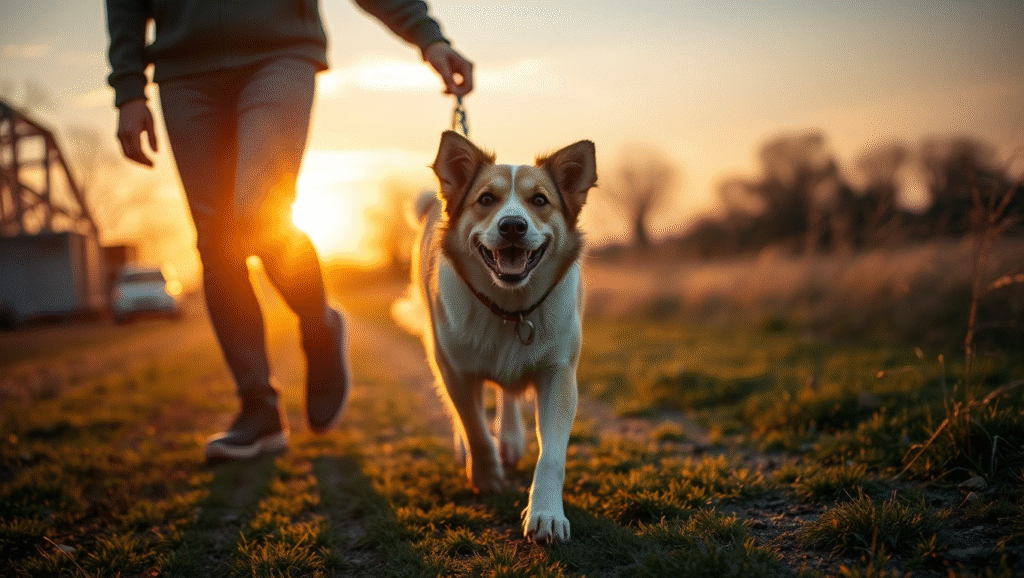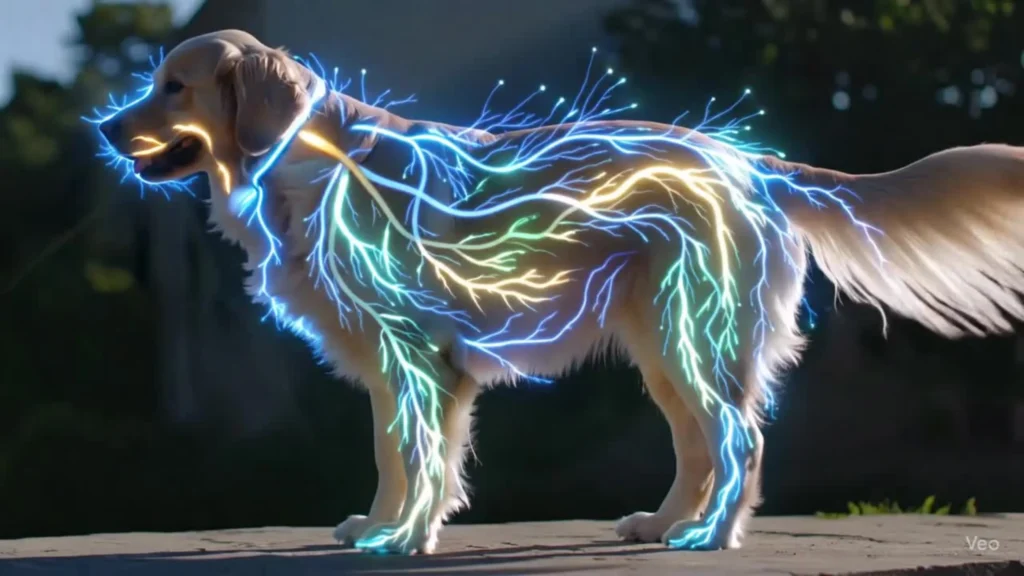Is your pet a genius? Discover the signs of intelligence that may surprise you!
In this article, we’ll dive into how to recognize smart pets, whether they bark or purr. From clever canines to brainy felines, you’ll learn the key traits that show just how brilliant your furry friends can be.
Plus, you’ll find fun ways to test their smarts and celebrate their unique abilities. Get ready to see your pet in a whole new light!
Key Insights
- Your pet can solve puzzles easily.
- They remember commands and tricks well.
- Your pet learns quickly from their mistakes.
- They show curiosity about new things around them.
- Your pet has a unique way of communicating with you.

Summary
Is Your Pet a Genius? Discover the Signs of Intelligence
Have you ever looked at your pet and thought, “Wow, you really are something special”? Pets can surprise us with their cleverness. But how do we know if our furry friends are truly intelligent?
There are some signs that can help us figure it out. Just like people, pets have unique ways of showing their smarts. Let’s dive into the world of pet intelligence and discover what makes them tick!
5 Reasons Your Pet Might Be Smarter Than You Think
- Problem Solving Skills: Have you ever watched your dog figure out how to open a door or your cat find a way to reach that elusive toy? These problem-solving moments can be a sign of intelligence. Pets often come up with creative solutions to get what they want.
- Understanding Commands: If your dog can follow commands like “sit,” “stay,” or “fetch,” that’s a clear sign they’re smart. Cats can also learn commands, even if they pretend not to listen sometimes. The ability to understand and respond to human cues shows a level of intelligence.
- Social Awareness: Pets can pick up on our emotions. If your dog snuggles up to you when you’re feeling down or your cat seems to know when you need some company, that’s emotional intelligence at work. They sense our feelings and react accordingly.
- Memory: Pets have impressive memories, especially regarding routines or remembering where they left their toys. If your pet recalls where they buried their favorite bone or remembers the sound of the treat jar, they’re showing off their smarts.
- Learning from Experience: Just like us, pets learn from their experiences. If your dog avoids a certain area after getting a shock from an electric fence or your cat knows to stay away from the vacuum cleaner, they’re learning and adapting their behavior. This ability to learn from past experiences is a hallmark of intelligence.
Recognizing Smart Pets: Key Traits to Look For
So, how can you tell if your pet is a genius? Here are some key traits to keep an eye on:
- Curiosity: Smart pets are often curious about their surroundings. They explore new places, sniff out interesting smells, and investigate anything that catches their eye. If your pet is always eager to check things out, that’s a good sign!
- Playfulness: Intelligent pets tend to be playful. They enjoy games and puzzles that challenge their minds. If your dog loves playing fetch or your cat enjoys batting around a toy mouse, they’re likely using their brainpower.
- Adaptability: A smart pet can adapt to new situations. If you move to a new house or introduce a new family member, a clever pet will quickly adjust. They’re flexible and can handle changes without too much stress.
- Communication: Pets that communicate their needs and feelings effectively are often on the smarter side. Dogs might bark, whine, or use body language to express themselves, while cats might meow or purr in different tones to get your attention.
- Attention to Detail: Some pets pay close attention to their environment. They notice small changes, like a new piece of furniture or a different person in the house. This awareness can show a higher level of intelligence.
Clever Dog Signs: How to Spot a Canine Genius
Dogs are often seen as man’s best friend, but they can also be some of the smartest creatures around. Here are some signs that your dog might be a genius:
- Learning New Tricks Quickly: If your dog can pick up new tricks in just a few tries, that’s a big indicator of intelligence. Some dogs can learn complex commands or even perform tricks that require multiple steps.
- Problem-Solving Skills: Dogs that can figure out how to get to a treat hidden under a cup or find their way through an obstacle course are showcasing their smarts. They often use their nose and paws to solve puzzles.
- Strong Memory: If your dog remembers where you keep their toys or can find their way back home after a long walk, they’ve got a good memory. This ability to recall information is a sign of intelligence.
- Social Skills: Smart dogs often get along well with other pets and people. They can read social cues and know when to play or when to back off. If your dog is great at making friends, that’s a clever trait!
- Emotional Sensitivity: Dogs that can sense when you’re feeling down or anxious and respond with comfort are showing emotional intelligence. They often know when to snuggle up or give you space.
Cat Intelligence Indicators: Is Your Feline a Brainiac?
Cats may have a reputation for being aloof, but they can be just as smart as dogs. Here are some signs that your cat is an intellectual:
- Hunting Skills: Cats are natural hunters. If your cat stalks and pounces on toys or even your feet, they’re using their instincts and intelligence. They know how to strategize to catch their prey.
- Learning from Experience: Just like dogs, cats learn from their experiences. If your cat avoids a certain area after a bad experience, they’re showing they can learn and adapt.
- Social Interaction: Some cats are very social and enjoy interacting with their humans. If your cat comes to greet you at the door or seeks out your company, they’re displaying social intelligence.
- Curiosity and Exploration: Cats are naturally curious. If your cat loves to explore new spaces or investigate boxes and bags, they’re using their brains to learn about their environment.
- Communication Skills: Cats communicate in various ways, from meowing to purring to body language. If your cat has a unique way of expressing themselves, that’s a sign of intelligence.
Understanding Pet Behavior: What It Says About Their IQ
Understanding your pet’s behavior can give you great insights into their intelligence. Here are some behaviors to consider:
- Play Behavior: Pets that engage in play often show higher intelligence. They use play to practice skills and learn about their environment. If your pet enjoys interactive toys or games, they’re likely exercising their brain.
- Exploratory Behavior: If your pet is always sniffing around or checking out new things, they’re displaying curiosity. This behavior shows a desire to learn and understand their surroundings.
- Attention Span: Pets with longer attention spans tend to be smarter. If your dog can focus on a task or your cat can watch a bird for an extended period without losing interest, that’s a good sign.
- Social Learning: Some pets learn by watching others. If your dog learns a trick by observing another dog or your cat figures out how to open a door by watching you, they’re displaying social intelligence.
- Behavioral Adaptation: If your pet can adjust their behavior based on different situations, they’re showing intelligence. For example, if your dog knows when to be calm during a vet visit or your cat behaves differently when guests are over, that’s a sign of adaptability.
Pet IQ Assessment: Fun Ways to Test Your Pet’s Smarts
Want to put your pet’s intelligence to the test? Here are some fun ways to assess their smarts:
- Puzzle Toys: Invest in some puzzle toys that require your pet to figure out how to get a treat. This can challenge their problem-solving skills and keep them entertained.
- Hide and Seek: Play a game of hide and seek with your pet. Hide somewhere in your home and call them to find you. This can test their memory and ability to follow commands.
- Obstacle Courses: Set up a simple obstacle course in your backyard or living room. Use chairs, boxes, and other items to create challenges for your pet to navigate.
- New Tricks: Teach your pet a new trick and see how quickly they can learn it. This can be a fun way to gauge their ability to pick up new skills.
- Interactive Games: Play interactive games that require your pet to think, like fetch with a twist or teaching them to roll over. This can be a great way to engage their minds.
If you’re experiencing behavioral problems with your dog, it’s time to develop your dog’s “Hidden Intelligence” to eliminate bad behavior and create the obedient, well-behaved pet of your dreams…
Unlock your dog’s hidden intelligence and eliminate bad behaviors for good with the revolutionary Brain Training for Dogs program
Feline Problem-Solving Abilities: Do Cats Really Think?
Cats are often underestimated when it comes to intelligence. But they have serious problem-solving abilities. Here’s how to recognize them:
- Finding Hidden Treats: If your cat can sniff out treats hidden in different places, they’re showcasing their problem-solving skills. They use their keen sense of smell and memory to locate the goodies.
- Manipulating Objects: Cats are known for their ability to manipulate objects. If your cat figures out how to open a door or turn on the faucet, they’re displaying intelligence and resourcefulness.
- Understanding Cause and Effect: Cats often learn through trial and error. If your cat learns that knocking something off a table gets your attention, they’re demonstrating an understanding of cause and effect.
- Creative Play: Cats often engage in creative play, using their toys in unique ways. If your cat invents games or plays with items in their environment, they’re showing their intelligence.
- Social Problem Solving: Cats can also solve social problems. If they navigate relationships with other pets or even humans, they’re displaying social intelligence.
Canine Cognitive Skills: The Hidden Genius in Your Dog
Dogs are often seen as loyal companions, but they also have hidden cognitive skills. Here’s what to look for:
- Understanding Human Emotions: Dogs can read human emotions and respond accordingly. If your dog comes to comfort you when you’re sad, they’re displaying emotional intelligence.
- Learning Vocabulary: Some dogs can learn a significant number of words and commands. If your dog responds to specific words or phrases, they’re showcasing their ability to understand language.
- Problem-Solving in Social Contexts: Dogs can solve problems in social situations. If your dog figures out how to get along with new pets or people, they’re showing social intelligence.
- Memory for Locations: Dogs often have a strong memory for locations. If your dog remembers where their favorite park is or can find their way back home, that’s a sign of intelligence.
- Creative Play: Dogs that engage in creative play often display higher intelligence. If your dog invents games or plays with toys in unique ways, they’re using their brains!
Conclusion
In conclusion, recognizing the intelligence of your furry friends can open up a whole new world of appreciation and understanding.
From their problem-solving skills to their unique ways of communicating, your pets are more than just companions; they are little geniuses in their own right! So, whether your dog is mastering new tricks or your cat is outsmarting a puzzle toy, take a moment to celebrate their brilliance.
Remember, each pet is unique, showcasing their smarts in ways that are often surprising and delightful. By engaging with them through fun activities, you not only stimulate their minds but also strengthen your bond.
So keep exploring, keep learning, and enjoy every moment with your clever companions! For more insights and tips on pet care and intelligence, don’t forget to check out more articles at Tech Havela. Happy pet parenting!
Frequently Asked Questions
What are the signs that your pet might be a genius?
You might notice your pet solving puzzles or learning tricks quickly. They could also understand commands better than others.
How can I test my pet’s intelligence?
Try out some fun games! Use treat puzzles or teach them new tricks. If they pick it up fast, that’s a good sign!
Is there a difference between a clever pet and a genius pet?
Yes! A clever pet can learn. A genius pet not only learns but also solves problems creatively.
Can certain breeds be smarter than others?
Absolutely! Some breeds are known for their intelligence. For example, Border Collies and Poodles often show great signs of intelligence. You can explore the top smartest dog breeds for more insights.
Do pets show intelligence in different ways?
Yes! Your pet might be clever in unique ways. Some may use their wit to get treats, while others might be great at remembering routines.
Can I train my pet to be smarter?
Definitely! Training helps build their brain power. Keep sessions fun and positive, and your pet will thrive! Consider training techniques that can enhance their learning.
How can I encourage my pet’s intelligence?
Play interactive games and offer new challenges. Keep things fresh to stimulate your pet’s mind and watch for signs of intelligence!
**Sidnir Vieira**
Founder of TechHavela
A passionate pet and tech content creator, helping dog owners across the U.S. make smarter decisions for their furry friends.



